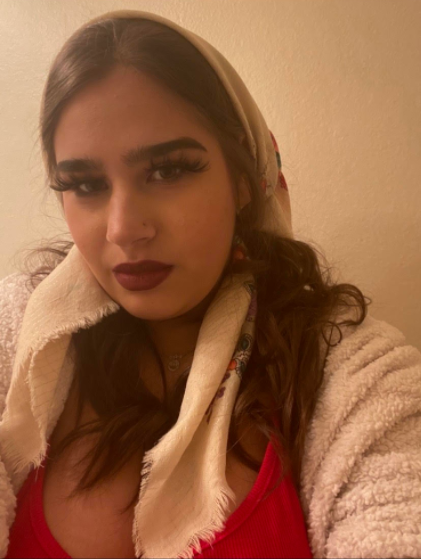
Gypsy. We’ve all heard of this word.
It’s exciting, it makes us think about wanderlust and nomadism, long skirts, and Coachella inspo. But what does it really mean, and what are the mental images that come to mind when the word ‘Gypsy’ is used? Perhaps a character, a nomad, a fortune teller, a seductive, dark woman, a magical creature?
These are all common stereotypes, and to quote Chimamanda Ngozi Adichie, “The problem with stereotypes is not that they are untrue, but that they are incomplete.” Gypsies aren’t characters on TV shows like ‘My Big Fat Gypsy Wedding’, and we don’t all practice fortune telling or witchcraft. We are not Gypsies. We are Roma.
The term Gypsy is an exonym, meaning it was given to us by outside groups, and it is not the name we choose for ourselves.
People called us Gypsies when we migrated to the Balkans and the people there thought we were from Egypt because of our dark skin, so they called us Gypsies.We are called Roma or Romani. Gypsy is a racial slur, and it is only reclaimed by Romani.
We are an Indo-Aryan subgroup originating from Northern India, and we have always been on the run because of extreme prejudice.
We were under chattel slavery in the Balkans for 500 years, up until its abolition in 1964– just one year before the U.S. officially abolished slavery. This fact is not well known by people outside of the Roma community, and our genocide in the Holocaust is also not a well-known fact. An estimated 1.5 million Roma died out of the then Roma population of 2 million.
Roma got the word “Zigeuner”– the German word for Gypsy, tattooed on their skin. My family had serial numbers and racial slurs translating to Gypsy tattooed in their skin, and were gassed and slaughtered just to have millions of white people saying that they have a “Gypsy Soul” because they love to travel and love the ‘boho’ look.
Gypsy souls are the ones of my ancestors– the ones who died wearing dikhlos, screaming for their children, for their parents. Gypsy souls are ones that were forced into a nomadic lifestyle because wherever they settled, they were discriminated against due to their dark skin. We did not move for love of travel.
People thought that Roma crawled out of a hole in the earth– that we were magical creatures who dyed our skin in walnut juice to be able to commit our crimes freely in the dark.
I have the privilege of being an American, and so when I lived in Greece during my middle school years, my parents advised us to never let anyone know that we were Roma, because people there are so prejudiced against us. Because I was American, people didn’t ask questions.
The Roma kids I went to school with were held back several times, the teachers never interacted with them besides to punish them, and they were never helped. Not one Roma kid from my school ended up graduating.
My great aunt was the first Roma woman to graduate from high school in her area of Serbia.
Roma in the Balkans have a huge mistrust for the education system, as it’s most often been a source of bullying and violence for Roma kids. Roma kids in Europe are often automatically placed in Special Education.
Roma men and boys get killed from police brutality. Roma women get sterilized unwillingly, get fetishized and exoticised, a large percentage are survivors of assault, and they are routinely failed by the healthcare system.
So yes, some of us may be fortune tellers, or wear long skirts and dikhlos, and that may seem sexy and appealing for you. But the rest of the story is that we have centuries of generational trauma, of genocide, of blood spilled– the rest of the story is that no matter how proud I am to be Roma, I still get nervous about wearing my dikhlo in public and sometimes choose not to because I’m honestly scared.
So unless that is your story, your trauma, your resilience, your culture, your genocide– no, you do not have a Gypsy f*cking Soul.
